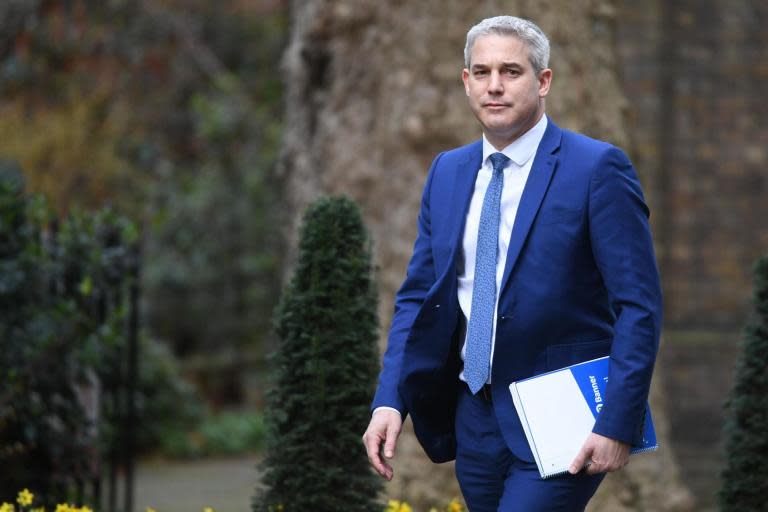Brexit Secretary Stephen Barclay backs delaying UK’s departure from EU
Brexit Secretary Stephen Barclay today backed delaying the UK’s departure from the EU - having voted against such a move just days ago.
The Cabinet minister, who supported Leave, appeared to make a second U-turn in less than a week on Brexit Day being put back from March 29.
He sparked derision last week when he argued for an extension from the Despatch Box, only to vote against it minutes later.
In a further twist this morning, he came out defending an extension, with the Government still seemingly unable to get a majority for its Brexit plans and Speaker John Bercow ruling out allowing another vote on it unless the proposition on the table changes substantially.
Mr Barclay told Sky News: “I stand with the Prime Minister which is the best way forward is to get a deal which will require now a short extension...”
Pressed on whether he supported an extension to Article 50, the two-year process of quitting the EU, he added: “Well I do, I have been clear that I don’t want an extension but we are now in a situation where we do need to have an extension to pass the legislation for the Withdrawal Bill...
“There will need to be a short extension.”
He admitted there had been “confusion” after he opposed, in a free vote, the Government motion for an extension on Thursday, having told MPs: “It is time for this House to act in the national interest. It is time to put forward an extension that is realistic.”
Mr Barclay, whose North East Cambridgeshire constituency voted overwhelmingly to Leave, insisted his speech had largely been against a series of amendments to the motion and that it had floated the possibility of a longer extension, as well as a shorter one.
But shadow Brexit minister Matthew Pennycook said: “The Brexit Secretary is all over the place. First he called for an extension, then he voted against that extension and now he is calling for an extension again.
“He’s going round in circles. Why on earth should the EU take us seriously when the Government’s own negotiator can’t decide what he really thinks?”


